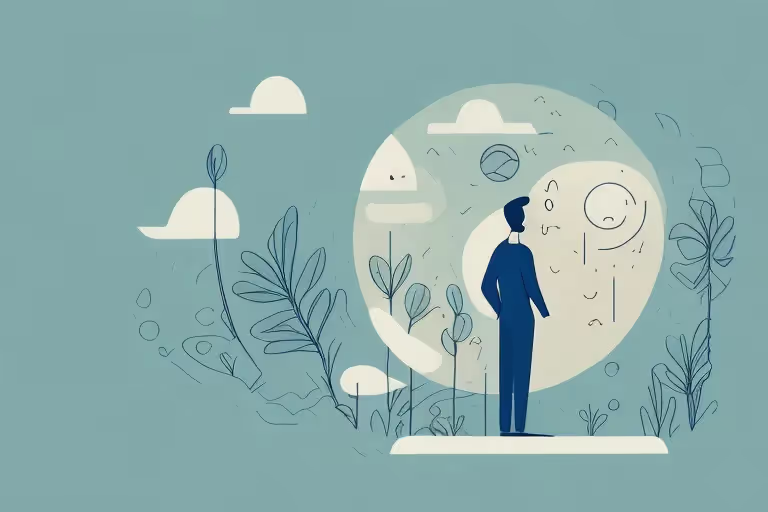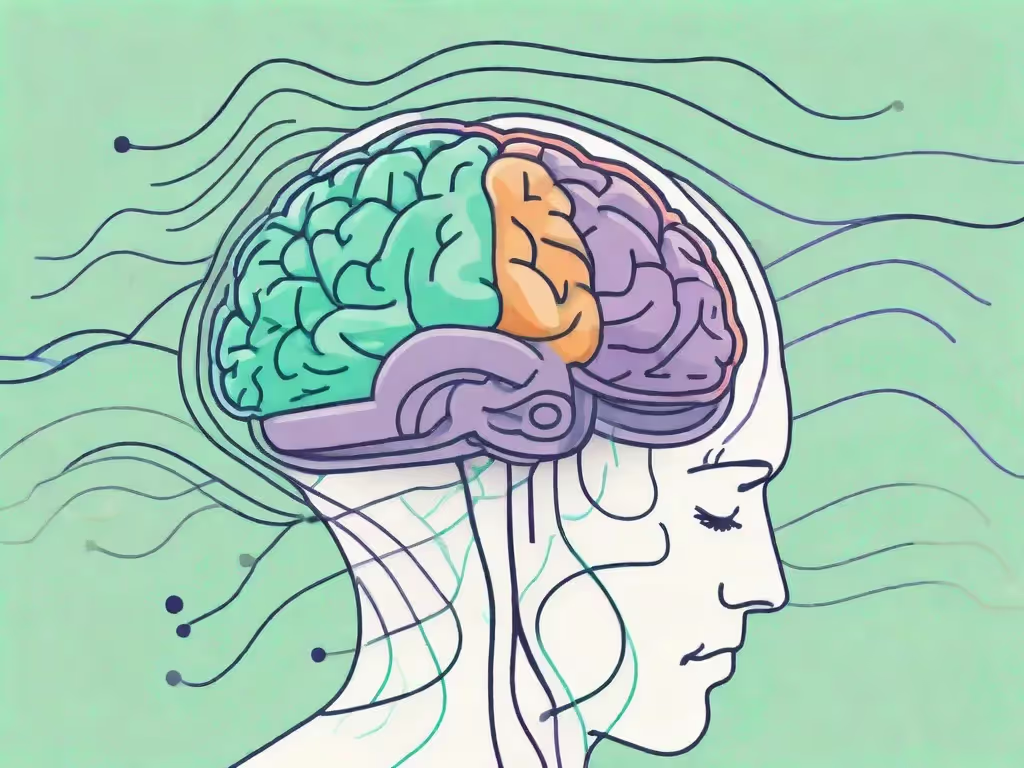Have you ever wondered if sleep hypnosis really works? Well, you're not alone! Many people are curious about this alternative approach to improving sleep quality. In this article, we'll take an evidence-based look at sleep hypnosis and explore its potential benefits, the science behind it, and any risks or considerations you should be aware of. So, grab your favorite blanket, get cozy, and let's dive into the world of sleep hypnosis!
Understanding Sleep Hypnosis
What is Sleep Hypnosis?
Sleep hypnosis is a technique that aims to help individuals relax and fall into a deep, restful sleep through the use of hypnotic suggestions. These suggestions are usually delivered through audio recordings or by a trained hypnotherapist. The goal is to guide the mind into a state of relaxation and suggest positive imagery and thoughts to promote better sleep.
Sleep hypnosis has been used for centuries as a natural way to induce sleep. It is a safe and non-invasive method that can be used by anyone, regardless of age or background. Many people turn to sleep hypnosis as an alternative to medication or other sleep aids, as it is believed to have fewer side effects and can be a more holistic approach to improving sleep quality.
One of the key benefits of sleep hypnosis is its ability to address the underlying causes of sleep disturbances. Whether it's stress, anxiety, or racing thoughts, sleep hypnosis can help individuals relax their mind and body, making it easier to drift off into a deep and rejuvenating slumber.
The Process of Sleep Hypnosis
During a sleep hypnosis session, the individual typically lies down in a comfortable position and focuses on their breathing while listening to the hypnotic suggestions. The hypnotist or audio recording will often guide the person through a series of relaxation exercises, such as progressive muscle relaxation or visualization techniques.
Progressive muscle relaxation involves tensing and then releasing each muscle group in the body, starting from the toes and working up to the head. This technique helps to release physical tension and promote a sense of calm and relaxation.
Visualization techniques, on the other hand, involve creating vivid mental images that are calming and soothing. For example, the hypnotist may guide the individual to imagine themselves lying on a beautiful beach, feeling the warm sand beneath their toes and hearing the gentle sound of waves crashing against the shore. These visualizations can help to distract the mind from racing thoughts and create a peaceful and serene mental environment.
The duration of a sleep hypnosis session can vary depending on the individual's needs and preferences. Some sessions may last as short as 10 minutes, while others may extend up to an hour. It is important to find a duration that works best for you and allows enough time for relaxation and deep sleep.
It's worth noting that sleep hypnosis is not a one-size-fits-all solution. Different individuals may respond differently to the techniques and suggestions used in sleep hypnosis. Therefore, it may take some trial and error to find the right approach that works best for you.
Overall, sleep hypnosis is a powerful tool that can help individuals overcome sleep difficulties and achieve a more restful and rejuvenating sleep. By harnessing the power of the mind, sleep hypnosis offers a natural and effective way to improve sleep quality and promote overall well-being.
The Science Behind Sleep Hypnosis
How Does Hypnosis Affect the Brain?
Research suggests that hypnosis can have a profound impact on the brain. During hypnosis, the brain enters a state of focused attention and heightened suggestibility. This altered state of consciousness allows individuals to bypass their critical thinking and tap into their subconscious mind.
But what exactly happens in the brain during hypnosis? Neuroimaging techniques, such as functional magnetic resonance imaging (fMRI), have provided valuable insights. These studies have shown that hypnosis can influence various brain regions involved in perception, memory, and emotion.
For example, when individuals are under hypnosis, the prefrontal cortex, which is responsible for executive functions like decision-making and self-awareness, becomes less active. At the same time, the anterior cingulate cortex, involved in emotional processing, shows increased activity. These findings support the idea that hypnosis has the potential to create changes in brain activity and neural connections.
Moreover, research has also shown that hypnosis can modulate the activity of the default mode network (DMN), a network of brain regions involved in self-referential thinking and mind wandering. During hypnosis, the DMN becomes less active, suggesting a shift from self-focused thoughts to a more externally focused state of mind.
The Role of Hypnosis in Sleep Regulation
Sleep is a complex process controlled by different regions of the brain. Hypnosis can potentially help regulate sleep by promoting relaxation, reducing anxiety, and enhancing the mind-body connection.
When it comes to sleep hypnosis, the goal is to tap into the individual's innate ability to fall asleep naturally. By accessing the subconscious mind, sleep hypnosis aims to address any underlying psychological factors that may be contributing to sleep difficulties.
One of the key mechanisms through which hypnosis may influence sleep is by promoting relaxation. During hypnosis, individuals are guided into a deeply relaxed state, which can help reduce physical and mental tension. This relaxation response can then facilitate the transition into sleep, making it easier for individuals to let go of racing thoughts and worries.
Furthermore, hypnosis can also help reduce anxiety, which is a common barrier to falling asleep. By addressing and reframing anxious thoughts and beliefs, hypnosis can help individuals create a more calm and conducive mental state for sleep.
It's important to note that sleep hypnosis is not a standalone solution for sleep disorders. While it can be a helpful tool, it may be more effective when combined with other evidence-based techniques, such as cognitive-behavioral therapy for insomnia (CBT-I). CBT-I focuses on addressing the underlying causes of sleep difficulties and implementing behavioral and cognitive strategies to improve sleep quality.
Overall, the science behind sleep hypnosis highlights the potential of this technique to influence brain activity and promote better sleep. By harnessing the power of the subconscious mind, sleep hypnosis offers a holistic approach to sleep regulation, addressing both the psychological and physiological aspects of sleep.
Evidence Supporting Sleep Hypnosis
Clinical Studies on Sleep Hypnosis
While more research is needed, some studies have provided preliminary evidence supporting the effectiveness of sleep hypnosis. A systematic review published in the journal Sleep Medicine Reviews examined several randomized controlled trials (RCTs) on hypnosis for insomnia.
The review found that sleep hypnosis interventions led to significant improvements in sleep quality, sleep duration, and daytime functioning in individuals with insomnia. However, the small sample sizes and variations in intervention protocols highlight the need for more robust research in this area.
Testimonials and Case Studies
In addition to clinical studies, many individuals have reported positive experiences with sleep hypnosis. Numerous testimonials and case studies abound, showcasing how sleep hypnosis has helped people overcome sleep difficulties and achieve a more restful night's sleep.
While testimonials can be subjective and influenced by various factors, including placebo effects, they do provide anecdotal evidence of the potential benefits of sleep hypnosis. However, it's important to approach such accounts with a critical mindset and consider them alongside empirical research.
Potential Benefits of Sleep Hypnosis
Improving Sleep Quality
One of the main goals of sleep hypnosis is to improve sleep quality. By inducing a deep state of relaxation and guiding the mind away from distracting thoughts, sleep hypnosis may help individuals achieve a more restorative sleep. Waking up feeling refreshed and energized can be one of the many benefits of incorporating sleep hypnosis into your bedtime routine.
Reducing Sleep Disorders
Sleep disorders, such as insomnia, can significantly impact an individual's overall well-being. Sleep hypnosis, when used in conjunction with other evidence-based techniques, may be helpful in reducing the symptoms of these disorders. It's important to consult with a healthcare professional before using sleep hypnosis as a treatment for any diagnosed sleep disorder.
Risks and Considerations of Sleep Hypnosis
Possible Side Effects
While sleep hypnosis is generally considered safe, some individuals may experience side effects. These can include drowsiness upon awakening, vivid dreams, and headaches. It's important to note that these side effects are usually temporary and tend to diminish with regular practice.
Who Should Avoid Sleep Hypnosis?
While sleep hypnosis can benefit many individuals, there are certain groups who should avoid or consult with a healthcare professional before trying it. These include individuals with severe mental health conditions, such as schizophrenia or bipolar disorder, and those with a history of epilepsy or sleep-related issues requiring medical intervention.
In Conclusion
Sleep hypnosis holds promise as a complementary approach to improve sleep quality and overcome sleep disorders. While more research is needed to fully understand its mechanisms and effectiveness, the existing evidence suggests that sleep hypnosis may offer a valuable tool for those seeking alternative methods to enhance their sleep.
Remember, it's always essential to consult with a healthcare professional before starting any new sleep or relaxation technique. They can provide personalized guidance based on your specific needs and help you determine whether sleep hypnosis is right for you. So, give it a try if you're curious, and may you have a peaceful and restful night's sleep!
Aura is Your All In One App for Meditation, Mindfulness Wellbeing
Find peace every day with one app for your whole well-being. There is no one-size-fits-all solution to mental well-being. Aura is the first all-in-one wellness app that learns how to best help you. Discover an endless library of expert-created tracks for your well-being, all taught by the world’s best coaches, therapists, and storytellers. With Aura's personalized recommendations, you can find peace every morning, day and night.



.webp)






.avif)

%20(1).avif)


.avif)
.avif)
.webp)


.avif)


















































































































.avif)

















.svg)









